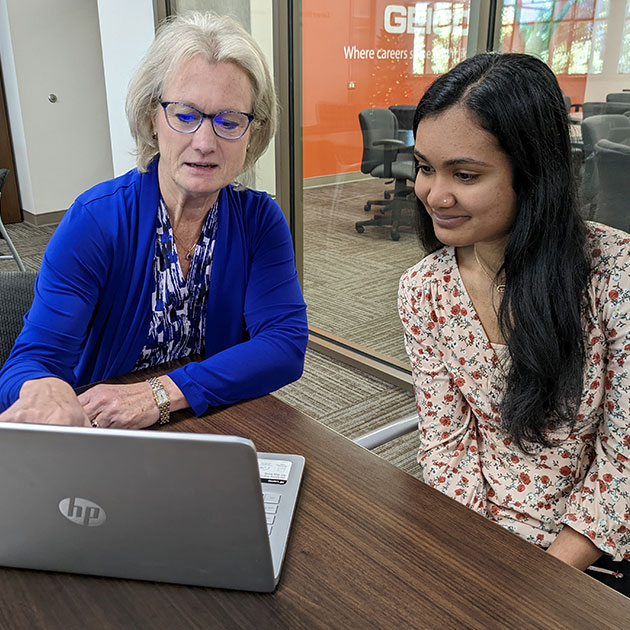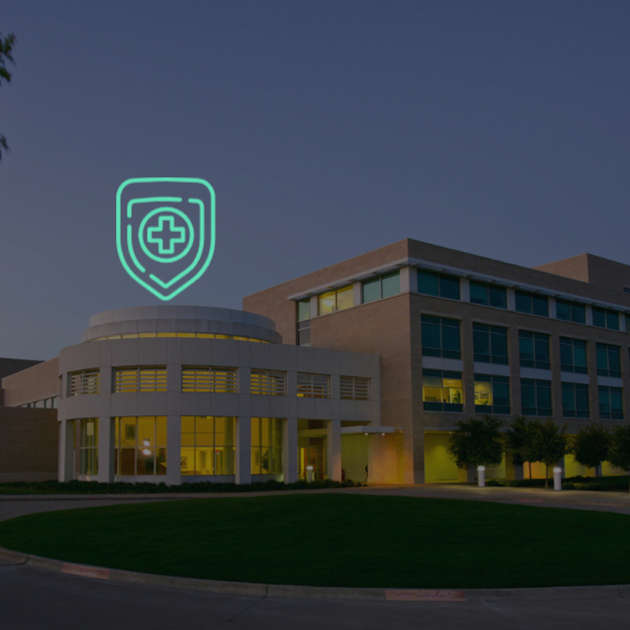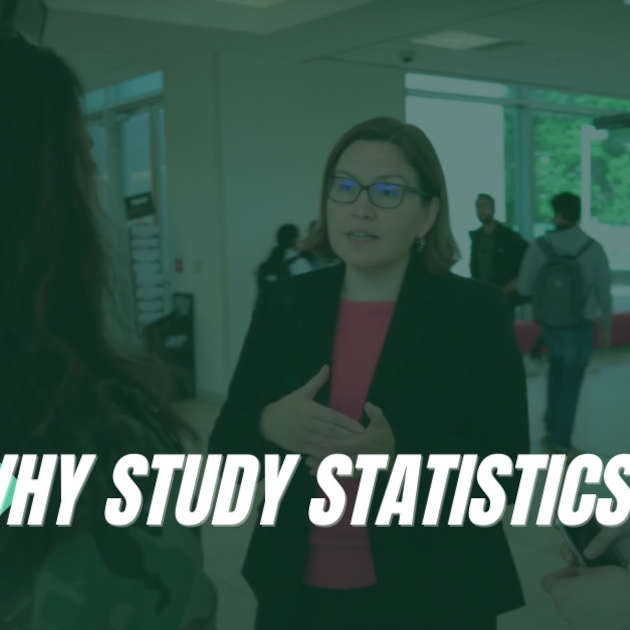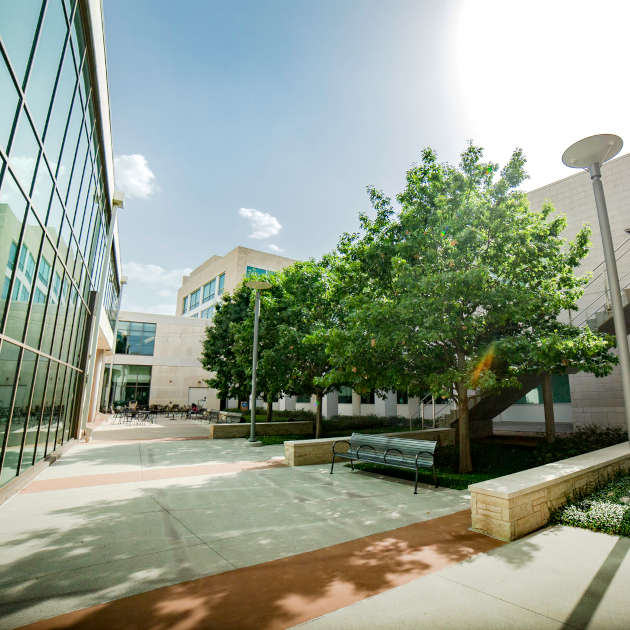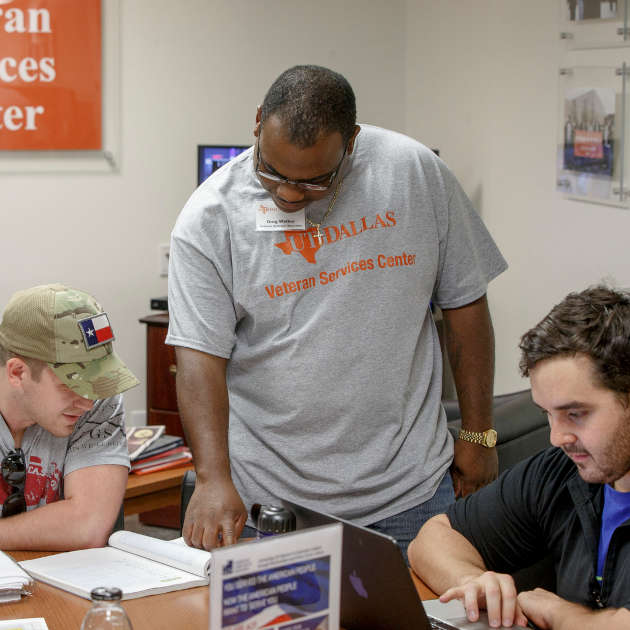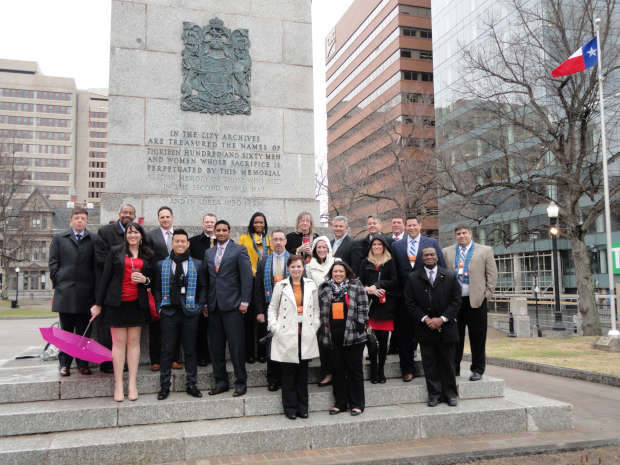
Once the decision is made on where to go on Executive MBA international study trips, the program director — me — identifies how to meet the course objectives. In the Executive MBA programs, this is accomplished mainly through governmental and company visits. Through research, local connections (made via students, faculty and alumni) and often a third-party provider, industries are identified to explore, and subsequently companies are identified. I then begin connecting with executives of these companies to orchestrate company visits. These visits may be with corporate executives of large multinational enterprises, government organizations such as the U.S. Department of Commerce, or a small local startup. The diversity of the company visits allow the students to synthesize what they learn and evaluate if they would recommend that their own company do business there.
Here is an example of an “Americas’ Trip,” a trip in the Western Hemisphere, in 2015.
At the recommendation of alumnus Charles Gillis, EMBA 2004, we took our first-year EMBA students to Halifax, Nova Scotia, for their Americas’ Trip this year. We didn’t just go for the locally brewed beer and lobster — although they were yummy! Nova Scotia has a declining economy that further complicates the brain drain of its young people to western, urban and rural communities. In 2014, Nova Scotia commissioned a report, “Now or Never — a Call to Action for Nova Scotians,” which defined changes that the industries and people in the province need to make in order to have a sustainable future.
We began our visit with a cultural tour. We visited the graveyard of the Titanic. We met with a local coffee startup that has expanded to include a rum cake business and candy shop. A class favorite included a tour of the Alexander Keith’s Brewery, the oldest brewery in Nova Scotia. Afterward, we sampled the beer while the staff, in period clothing, entertained us. The honorable Mayor Mike Savage spoke to us at our welcome reception.
On company visits, we met with Kevin McCoy, president of Irving Shipbuilding, who talked to us about the recent $26B contract that the shipyards received and the Canada-based incentives associated with the vendors and suppliers supporting the contract.
We met with the founder of Survival Systems, Albert Bohemier, and his general partner, Paul Douglas. Survival Systems provides survival training for personnel of helicopters that crash in the ocean. They train military and civilian personnel from around the world.
We met with David Reagan from DHX Media, which is a producer of children’s and family content media. Their brands include Inspector Gadget, Teletubbies and Yo Gabba Gabba! DHX, an international company with offices all over North America and Europe, chose to invest in Halifax to support the technology industry in Nova Scotia.
We also met with executive MBA students and alumni from the St. Mary’s University Sobey Business School for a round-table discussion on the future of Nova Scotia.
We ended the trip with a visit to Deloitte and a meeting with the honorable Stephen McNeil, premier of Nova Scotia, who talked to us about Nova Scotia’s course one year into the Call to Action.
Our takeaways from Nova Scotia were that the traditional industries of fishing, farming, and oil and gas have to become more innovative and expand to global markets. The emerging industries need to be quick on implementation.
Stay tuned next week to read about another international study tour, or catch up with last week’s post about the value of international study trips.

